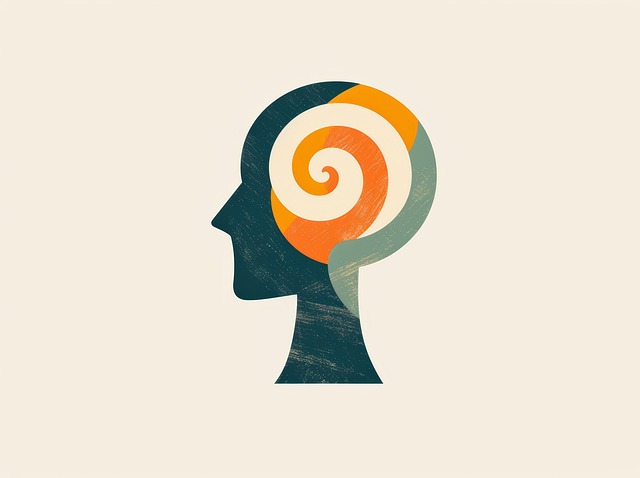Mental health advocacy globally promotes well-being by raising awareness, combating stigma, and providing access to quality therapy, especially Somatic Experiencing for children. This innovative approach targets trauma through mind-body connection techniques, enhancing resilience and emotional processing. Community engagement, education, and initiatives like workshops and awareness campaigns further support mental wellness, normalizing conversations and empowering individuals to manage their mental health. Overcoming barriers to access, such as stigma and financial constraints, is crucial for ensuring all children can benefit from evidence-based treatments like Somatic Experiencing.
Mental health advocacy initiatives are a global imperative, ensuring every child receives the therapy they need for optimal well-being. This article delves into key aspects of this crucial effort, exploring topics such as the profound impact of therapy on children’s mental health and innovative approaches like Somatic Experiencing for trauma healing. We also examine community engagement strategies and methods to overcome barriers, aiming to ensure access to life-changing therapy for all children.
- Understanding Mental Health Advocacy: A Crucial Global Effort
- The Impact of Therapy on Children's Mental Well-being
- Somatic Experiencing: A Unique Approach to Trauma Healing
- Community Engagement and Education in Mental Health Advocacy
- Overcoming Barriers: Ensuring Access to Therapy for All Children
Understanding Mental Health Advocacy: A Crucial Global Effort

Mental health advocacy is a global effort that plays a crucial role in shaping societies’ overall well-being. It involves raising awareness, promoting understanding, and fighting stigma associated with mental health issues. This initiative extends beyond mere awareness campaigns; it encompasses a wide range of activities including designing effective mental health education programs, implementing coping skills development strategies, and providing communication strategies to foster open conversations about mental wellness.
Advocacy efforts are vital in ensuring that individuals, especially vulnerable populations like children, have access to quality therapy for children. Techniques such as Somatic Experiencing offer innovative approaches to address deep-seated trauma and promote healing. By integrating these advocacy initiatives, communities can create a more inclusive and supportive environment where mental health is prioritized, and those in need receive the necessary assistance without fear of judgment or discrimination.
The Impact of Therapy on Children's Mental Well-being

Therapy plays a pivotal role in fostering and maintaining children’s mental well-being. Specifically, approaches like Somatic Experiencing have proven highly effective in addressing trauma and enhancing resilience in young individuals. By incorporating sensory and physiological techniques, this form of therapy aids children in processing traumatic experiences, promoting self-regulation, and cultivating emotional intelligence.
Beyond addressing past traumas, therapy for children equips them with valuable empathy building strategies and self-awareness exercises. These tools empower kids to navigate life’s challenges more effectively, build healthier relationships, and boost their overall sense of well-being. In the broader context of mental health awareness, early intervention through therapy serves as a crucial step in preventing the escalation of mental health issues later in life.
Somatic Experiencing: A Unique Approach to Trauma Healing

Somatic Experiencing is a unique and innovative approach to trauma healing that focuses on the deep connection between the mind and body, offering a specialized therapy for children who have experienced traumatic events. This method recognizes that emotional and physical well-being are intricately linked, especially in cases of childhood trauma. By addressing the bodily responses to stress and trauma, Somatic Experiencing helps individuals process and release repressed emotions, leading to improved mental health outcomes.
The practice incorporates various techniques such as mindful movement, deep breathing exercises, and sensory experiences to help clients reconnect with their bodies and safe behaviors. This culturally sensitive approach in mental healthcare practice ensures that every individual receives tailored support, considering their unique backgrounds and experiences. Moreover, by integrating positive thinking and self-care routine development, Somatic Experiencing empowers individuals to take an active role in managing their mental health and fostering resilience.
Community Engagement and Education in Mental Health Advocacy

Community engagement and education are vital components of mental health advocacy initiatives, aiming to destigmatize mental illness and promote holistic well-being. By organizing workshops, seminars, and awareness campaigns, communities can foster an environment where individuals feel comfortable seeking therapy for children and themselves. These educational efforts play a crucial role in spreading knowledge about various therapeutic approaches, such as Somatic Experiencing, which focuses on resolving trauma through bodily sensations and responses.
Encouraging mental wellness journaling exercises and positive thinking practices within the community can empower individuals to take charge of their mental health. Moreover, these initiatives support the development of a supportive network that goes beyond traditional healthcare settings. In light of these efforts, mental health policy analysis and advocacy become more effective, as they are backed by informed communities ready to advocate for accessible and comprehensive mental wellness resources.
Overcoming Barriers: Ensuring Access to Therapy for All Children

Many children face barriers when it comes to accessing therapy and support for their mental wellness. Overcoming these obstacles is essential to ensuring that all kids, regardless of background or circumstances, can benefit from evidence-based treatments like Somatic Experiencing. One significant challenge lies in breaking down societal stigma surrounding mental health issues, especially among younger individuals. By educating communities, schools, and families about the importance of therapy and normalizing conversations around emotional well-being, we can create an environment where children feel comfortable seeking help.
Trauma Support Services play a crucial role in addressing specific barriers, such as financial constraints or limited access to specialized professionals. Many organizations offer sliding scale fees or community outreach programs to make therapy more accessible. Additionally, integrating Stress Reduction Methods and encouraging Mental Wellness Journaling Exercises can empower children with coping strategies and self-awareness tools. These initiatives not only support individual healing but also contribute to a broader culture of care and resilience.
Mental health advocacy initiatives, such as enhancing access to therapy for children and exploring innovative approaches like Somatic Experiencing, are vital global efforts. By engaging communities and educating the public, we can create a more inclusive and supportive environment for mental well-being. These strategies, combined with continuous research and understanding, hold the key to improving the lives of children worldwide.














